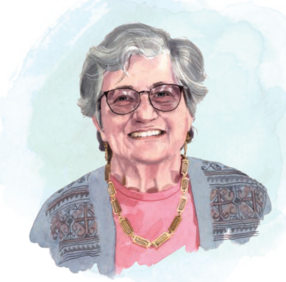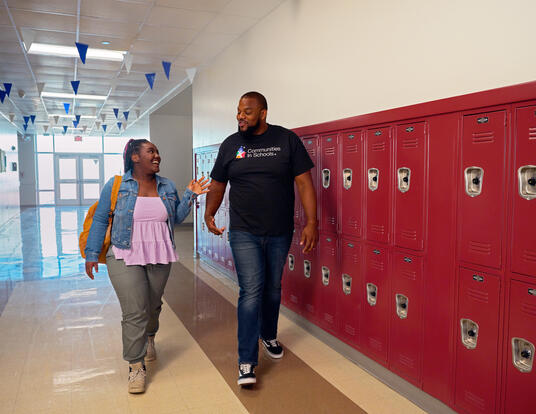Advancing the Study of Gender
2024 Centennial Medalist Myra Marx Ferree, PhD ’76
As the only one of seven siblings to graduate from college, Myra Marx Ferree didn’t get much guidance from her family on an academic career. Luckily, she encountered mentors at every turn who were instrumental in helping her chart her path. The first was the director of financial aid at St. Peter’s College in Jersey City, where she worked during high school. He encouraged her to apply to other schools secure in the knowledge that she’d have a “free ride” at St. Peter’s. She ended up at Bryn Mawr, where she studied political science. Her advisor there suggested she apply to law school as a backup, but also that she apply to PhD programs to continue learning and “explore the greater world.” When she was accepted by both Harvard Law School and Harvard Griffin GSAS she enrolled at the latter to pursue her interest in social sciences.

At Harvard, Ferree found a new mentor in Thomas Pettigrew, PhD ’56, a social psychologist in the department who promoted a broad view of disciplines as complementary. “His primary focus was on race,” she says, “but he had put together a dataset that included questions on voting for a woman for president. He knew I was interested in what were then called sex roles, so he suggested I write about that.” Her article was accepted without revision in Public Opinion Quarterly, which cemented her confidence that she could not only learn but also contribute to scholarship at the highest level.
As her adviser, Pettigrew greenlighted Ferree’s dissertation topic on working-class feminists—not a popular theme at the time. “It just goes to show how much the study of gender in academia has advanced,” Ferree says. “We’ve gone from ‘that stuff is not interesting’ to the point where it has become institutionalized. I was fortunate that Tom took me seriously.”
Gender scholarship wasn't legitimate when [Myra] and I started writing about it. She helped lead the way for people to say, 'We need to look into this.'
—Christine Bose, Professor Emeritus of Sociology, State University of New York at Albany
Ferree went on to contribute extensively not only to the sociology of gender but also to interdisciplinary scholarship on family, social movements, political discourse, work and organizations, and the comparative study of feminism. And she honored her early guides in academia by becoming a legendary mentor herself.
“Myra really helped shape the field of sociology of gender by opening new areas of scholarship and bringing people into them,” says Christine Bose, a professor emeritus of sociology at the State University of New York at Albany. “Gender scholarship wasn’t legitimate when she and I started writing about it. She helped lead the way for people to say, ‘We need to look into this.’”
Not only was Ferree a key mentor for a generation of scholars, including Aili Tripp, the Vilas Research Professor of Political Science at the University of Wisconsin-Madison, where Ferree taught for many years, but “she also played a tremendous role in community building,” says Tripp, creating long-lasting scholarly platforms by serving on national committees, establishing awards, networking internationally, and holding editorial positions on a raft of journals. “Her real talent is collaboration.”
Ferree focused on intersectionality before the word was coined, trying time and again to show how gender, class, and race had to be understood together for social scientists to get any of them right. “I found it hard to limit myself by discipline or topic,” she says. “When I started out, every question was wide open. We feminists knew the old answers that assumed only men mattered were wrong, but lacked good research on women. It replicated stereotypes over and over again, and I wanted a fresh look at all of it. I never thought I’d be recognized for helping to transform social science research, but yes, that is what I was aiming for.”
Get the Latest Updates
Join Our Newsletter
Subscribe to Colloquy Podcast
Simplecast





